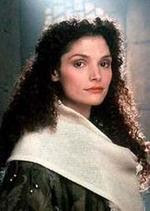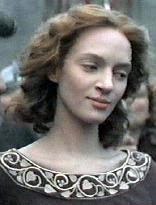 I'm approaching my final year at University, and as an English student I'm about to embark on the inevitable; Shakespeare. So far this summer I've managed to read 28, which leaves only ten to go, so the finish line is very much in sight. Hurrah! Obviously Shakey's been dead for centuries, and yet his plays have somehow transcended the constraints of time with stories that even now are frequently reproduced for the screen. Perhaps the most significant upcoming release is King Lear, featuring Anthony Hopkins as the tragic title-character with Keira Knightley, Gwyneth Paltrow and Naomi Watts as his three daughters. It's a great play and could make a great film, so I'm already really excited despite the fact that we're looking at a 2010 release. There's been no shortage of Shakespeare in cinemas in the last decade, and those with the biggest box office hauls have been those which relocate the action to modern-day America and reimagine the characters as high-schoolers. So what impact does this have on the original text, and why are filmmakers targeting an audience which is presumably the most anti-Shakespeare demographic on earth?
I'm approaching my final year at University, and as an English student I'm about to embark on the inevitable; Shakespeare. So far this summer I've managed to read 28, which leaves only ten to go, so the finish line is very much in sight. Hurrah! Obviously Shakey's been dead for centuries, and yet his plays have somehow transcended the constraints of time with stories that even now are frequently reproduced for the screen. Perhaps the most significant upcoming release is King Lear, featuring Anthony Hopkins as the tragic title-character with Keira Knightley, Gwyneth Paltrow and Naomi Watts as his three daughters. It's a great play and could make a great film, so I'm already really excited despite the fact that we're looking at a 2010 release. There's been no shortage of Shakespeare in cinemas in the last decade, and those with the biggest box office hauls have been those which relocate the action to modern-day America and reimagine the characters as high-schoolers. So what impact does this have on the original text, and why are filmmakers targeting an audience which is presumably the most anti-Shakespeare demographic on earth?First of all, age isn't always an issue. Baz Luhrmann's excellent Romeo and Juliet was completely accurate; the star cross'd lovers were always meant to be teenagers. But what about Get Over It, the truly abysmal adaptation of 'A Midsummer Night's Dream', or She's the Man, the surprisingly pleasant though occasionally moronic version of 'Twelfth Night'? Why the easy option of a high school comedy when you've already got comedic gold already written and royalty free? As far as I can see, the relocation of these plays to include sixteen to eighteen year olds is an effort on someone's part to pretend as far as possible that the film is about as far away from the bald guy we studied at school as humanly possible. Sure, there's the odd undeniable reference (Illyria in She's The Man, Stratford being Kat and Bianca's surname in Ten Things I Hate About You) but other than that any difficult aspects of the play are scrapped for teenagers' viewing pleasure. In 'Twelfth Night', Violet thinks that her brother has died in a shipwreck and, stranded in a foreign land, pretends to be a boy to ensure her security. In She's The Man, Violet is merely left a note by her brother stating that he has popped over to London for a couple of weeks, and she disguises herself as him in order to be able to play soccer. It is as if whoever wrote the script needed to flip the gender roles even more than Shakespeare did and thought 'I know, we'll make her like sports!' Similarly, the final message of 'The Taming of the Shrew' spoken by Katherine herself, that women should always obey men, is scrapped in favour of the concept that men will always be forgiven for being paid to date a woman if they buy her a guitar. The original message is of course too dated for modern day life, but then why bother making the film? It's a great teen film, but there's a strange friction between the original play and the new film which renders it a poor adaptation. So why push Shakespeare into the shadows? Are teenagers really so shallow that they would be less likely to see Get Over It if the trailers mention any trace of him? Maybe they are, in which case they're likely to miss out on King Lear unless some hasty re-writes make Lear a rich businessman offering his three major credit cards to his three high-school daughters before the two eldest try and bankrupt him while the youngest flees to a boarding school in France. If they manage to credibly get the eye-gouging scene in, I'll be first in the queue.















